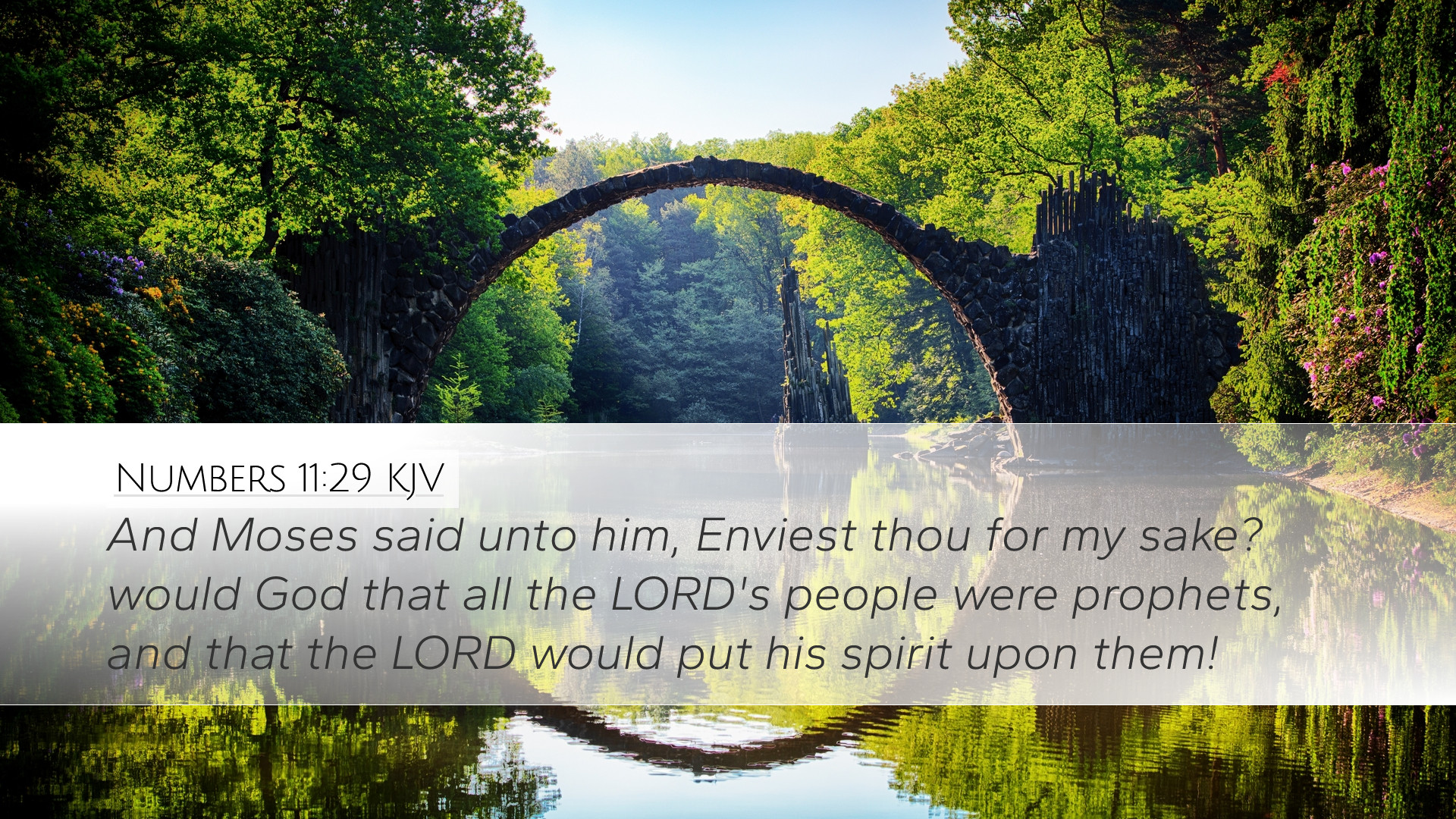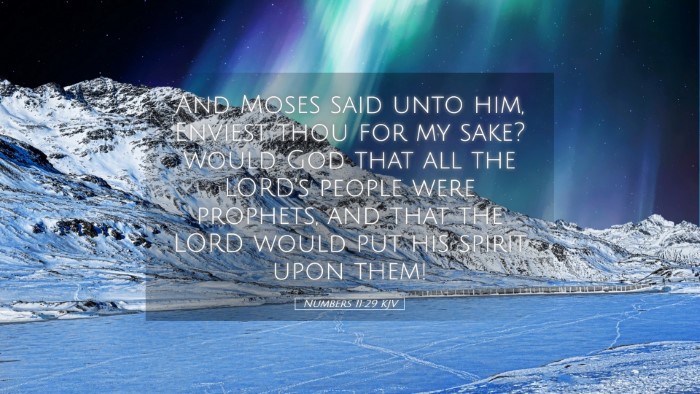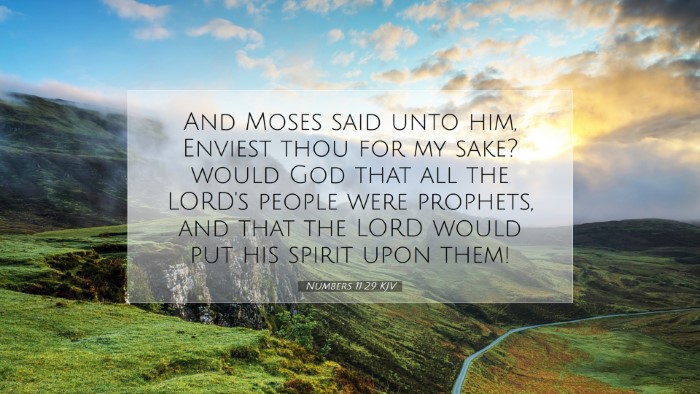Commentary on Numbers 11:29
Numbers 11:29 states, "And Moses said unto him, Enviest thou for my sake? Would God that all the Lord's people were prophets, and that the Lord would put his spirit upon them!" This verse occurs during a pivotal moment in Israel's journey, encapsulating the dynamics of leadership, prophetic gifting, and the desire for a deeper spiritual experience among God’s people.
Historical and Contextual Background
The Book of Numbers is set in the wilderness journey of the Israelites following their exodus from Egypt. Moses, as their leader, is not only responsible for guiding them through physical trials but also for shepherding them spiritually. The events surrounding Numbers 11 reveal the temptations, complaints, and expectations of the people, along with Moses’ unique role as mediator between God and His chosen nation.
The Envy of Eldad and Medad
Prior to this verse, God instructs Moses to gather seventy elders to assist him in leadership. Upon receiving the Spirit, Eldad and Medad prophesy within the camp, prompting a reaction from a young man who reports this to Moses, expressing concern over unauthorized prophetic activity (Numbers 11:27). This situation reflects a natural human tendency to view leadership and spiritual gifts as exclusive commodities.
Moses' Response
Moses' response to the young man's complaint is deeply significant. He asks, "Enviest thou for my sake?", indicating that the jealousy or envy comes from a misunderstanding of God’s intentions for His people. It also reveals Moses' humility and concern for the spiritual growth of the entire congregation versus his own status as leader.
The Desire for Prophets
Moses' wish that "all the Lord's people were prophets" is profound. It expresses his longing for a community in which everyone participates actively in hearing from God and sharing His messages. This sentiment echoes the anointing of all believers and the priesthood of all believers motif seen later in Christian theology.
The Theological Implication of Prophecy
Prophecy, in the biblical context, is both a reflection of God's revelation and an action of divine inspiration. Moses reveals a yearning that transcends his role; he desires an egalitarian sharing of the Spirit. This raises significant theological questions about the nature of the Holy Spirit's work in the community of believers, anticipated in the New Testament's fulfillment during Pentecost (Acts 2:17-18).
Public Domain Commentary Insights
- Matthew Henry emphasizes the zeal of Moses and suggests that his wish stems from a sincere desire for the spiritual welfare of the people, rather than personal aggrandizement. He remarks that true prophets are motivated by a burden for their people, and Moses exemplifies this role.
- Albert Barnes elaborates on the verse by indicating that the ability to prophesy was a gift from God, not limited to a specific few. Barnes highlights that the desire to see all Israelites enriched spiritually reflects God’s design for His people to be in constant communion and reflection of His will.
- Adam Clarke offers a view on the communal aspect of Moses' statement, advocating that divine inspiration should not be confined to elites within the covenant community. He observes that the New Testament expands this understanding by enabling every believer to potentially prophesy through the Spirit.
Implications for Leaders and Congregations Today
This verse carries profound implications for contemporary church leadership and congregational life. Leaders are called to cultivate an environment where the Spirit can move freely, encouraging all believers to engage with God's Word and share His truth within their contexts.
Encouraging Prophetic Voices
Church leaders ought to create spaces where individuals feel empowered to express God's revelations. This may involve nurturing spiritual gifts through teaching, prayer, and communal decision-making, fostering an active participation in the priestly function of the church.
A Reflection of Christ’s Vision
Moses’ desire foreshadows Christ’s prophetic fulfillment in the New Covenant. In Christ, every believer is invited into a personal relationship with the Holy Spirit, emphasizing the call to be vessels through which God's message flows. This democratization of spiritual gifts is essential for the health and vitality of the church.
Conclusion
Numbers 11:29 not only reflects Moses' desires but also encapsulates a vision for God’s people that endures through time. As we strive to understand and apply these biblical truths, may we echo Moses' prayer: for a community rich in prophetic insight, empowered by the Spirit to proclaim God’s truths boldly and faithfully.


